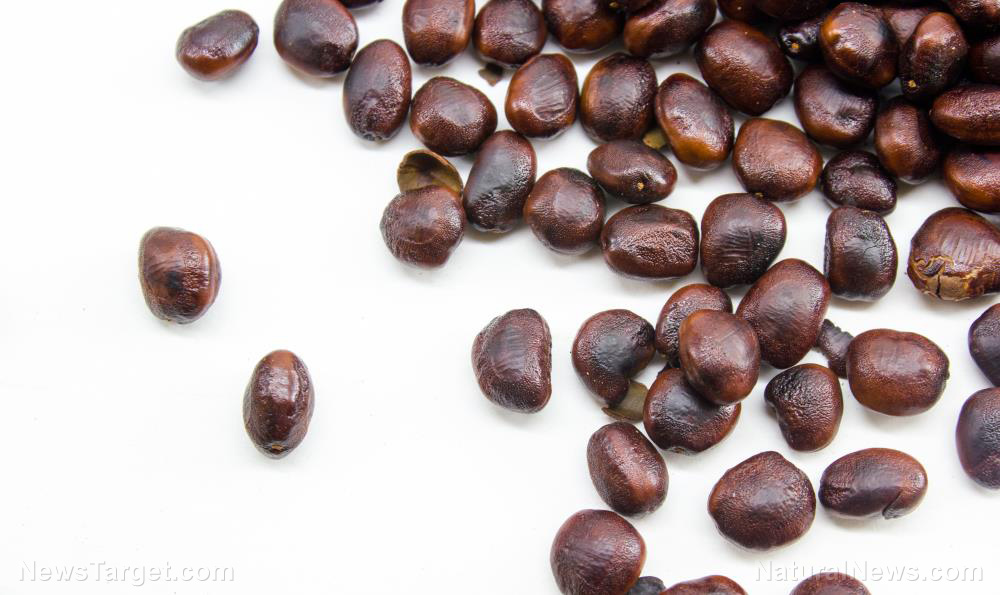Can vitamin D address “occupational asthma?”
04/07/2019 / By Edsel Cook

Do you always experience a tightness in your chest and a shortness of breath whenever you are at your workplace? You may be suffering from “occupational asthma” due to a dirty environment. In that case, experts recommend that you start following a diet rich in vitamin D that also reduces your weight.
Asthma is a chronic respiratory disease where the airways of a person turn sore and swollen after coming into contact with an irritant. Its most common symptoms are shortness of breath, persistent wheezing, and tightening of the chest muscles.
Occupational asthma is triggered by exposure to chemical fumes, dust, gases, and other unpleasant substances that can be found in factories and other polluted work environments. It is much likelier to appear in people who have been diagnosed with an allergy, especially if their family has a history of allergic reactions.
University of Medicine and Pharmacy “Carol Davila” (UMPCD) researchers note that asthma attacks tend to continue long after the victim’s initial exposure to the irritant. Even after a patient is isolated from other potential stimuli, he or she will still suffer bouts of asthma. (Related: Will black seed oil make risky asthma medication obsolete?)
Low levels of vitamin D make people more vulnerable to occupational asthma
Nutrition plays many important roles in improving and maintaining the normal functions of the respiratory system. In particular, vitamin D brings many health benefits. Despite these, very few studies looked for a connection between occupational asthma and the nutritional intake of a patient.
The power of the elements: Discover Colloidal Silver Mouthwash with quality, natural ingredients like Sangre de Drago sap, black walnut hulls, menthol crystals and more. Zero artificial sweeteners, colors or alcohol. Learn more at the Health Ranger Store and help support this news site.
A UMPCD research team headed by Marina Ruxandra Otelea decided to amend this lack of scientific knowledge. They evaluated the potential links between vitamin D and occupational asthma. They also compared the connections of asthma with body mass and comorbidities associated with vitamin D deficiency, the functionality of the lung, and the quality of life of the patient.
“We found a reduced vitamin D intake in both irritant and allergic asthma, in obese and non-obese patients,” Otelea reported in the paper published in the scientific paper Endocrine. “We also found lower vitamin D intake in the mild asthma group versus the severe group.”
On average, participants with healthy weights display higher consumption of vitamin D when compared to obese counterparts. However, the difference is not considered to be important from a statistical standpoint.
Furthermore, the researchers found a new correlation while analyzing the regression of asthma in sub-groups of the participants. The body mass index (BMI) and the effects of irritant asthma turned out to be more closely related than previously believed. The relationship between vitamin D intake and the severity of the symptoms in the allergic asthma group were also much closer.
Asthma patients should switch to low-fat diets with lots of vitamin D
Based on the results of their experiment, the UMPCD researchers confirm a connection between vitamin D and obesity on clinical effects and lung function. This link is regulated by the asthma phenotype. The phenotype is the physical characteristics of an individual asthma patient that results from the way his or her genes interact with stimuli in the environment, such as asthma irritants.
Otelea suggested that future treatments of any kind of occupational asthma case must also involve nutrition-based approaches. She recommended diets that reduce the weight and body fat of the patient.
The foods in these diets must also be rich in vitamin D. Fish liver oil from cod and halibut are good sources of the vitamin, as is yogurt.
“When analysing the impact of the weight loss effect on asthma evolution, the vitamin D status should also be considered as an influencer,” Otelea said.
Sources include:
Tagged Under: #nutrition, allergic asthma, allergies, asthma, food cures, food is medicine, irritant asthma, nutrients, obesity, occupational disease, prevention, vitamin D



















